Durban flood survivors: South Africans homeless, hurt and heartbroken
- Published
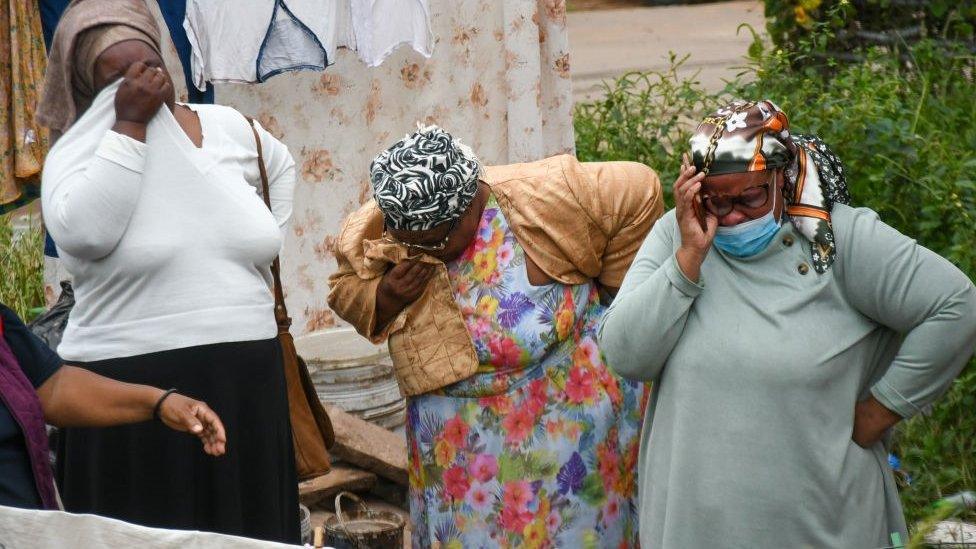
Residents have been mourning as they face the loss of loved ones, churches, homes and schools
A flood survivor has told the BBC she is homeless and hurt after one of South Africa's worst storms hit the eastern KwaZulu-Natal province.
"We're traumatised, we can't even eat. For the whole day I didn't eat because I don't know what to do," Boniswa Shangase said.
A state of disaster has been called in the region, after months worth of rain fell in just one day in some areas.
More than 390 people have died, but she survived by jumping out of a window.
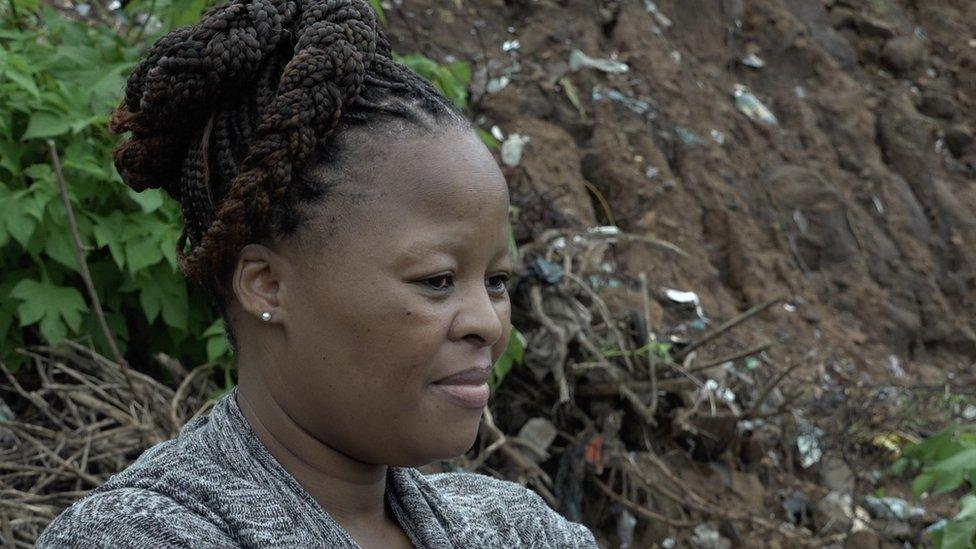
Boniswa Shangase no longer has a home
"I used the window to get out of the house, you can see I've got bruises here," the 40-year-old restaurant cashier said.
She put everything into making her house a home, and now, it is gone.
She built it 12 years ago and lived there with her two children, but at 22:00 on Monday night everything changed.
Mudslides caused by the excessive rain swept her property downhill in the township of Ntuzuma, in northern Durban.
"Now I'm homeless," she said. "We can't live here any more," nor can she imagine her life staying in a community hall.
Like most people living in informal settlements, she did not have any insurance.
Ms Shangase is not the only one still reeling from the impact of these historic floods - at least 13,000 homes have been damaged, according to South African authorities, and thousands are now living in shelters across Durban.
One man nearly broke down as he explained how he managed to make it out alive, but his child did not. Speechless, he dropped his head and struggled to get his words out, against a backdrop of rubble and destroyed properties.
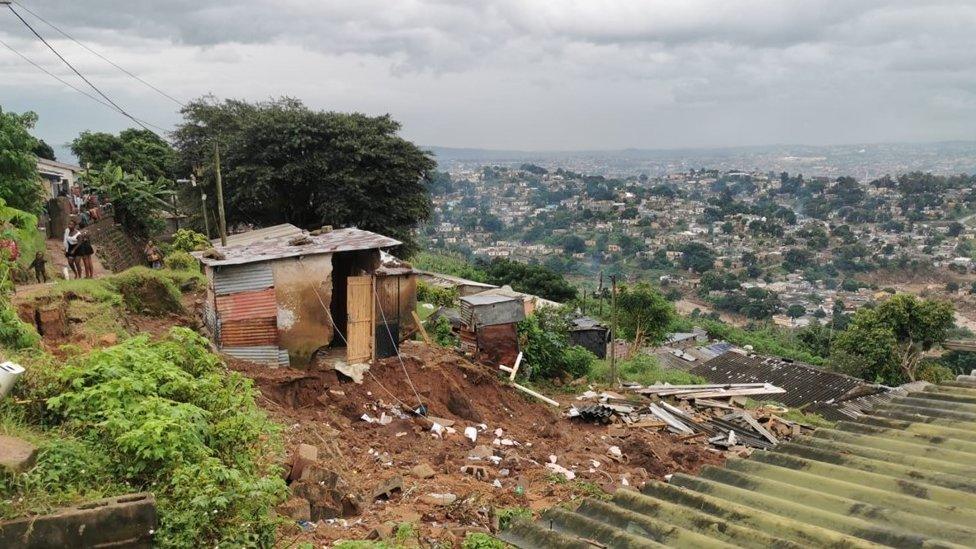
Boniswa Shangase's home once stood on this slope
In a church speech to mark Good Friday, President Cyril Ramaphosa urged people to pray for all those affected by the floods. He spoke of meeting a family who had lost 10 members calling it one of the saddest moments he had ever experienced.
Days earlier on a visit to affected areas in KwaZulu-Natal, the president said climate change was to blame, but some communities disagree. They say poor drainage and building standards have increased the scale of the disaster.
Durban Mayor Mxolisi Kaunda has denied that inadequate drainage was to blame, saying the scale of the flood was unexpected.
Informal settlements like some of those in Ntuzuma are built on a slope with limited foundations and flimsy dwellings.
The scale of the damage to infrastructure has been vast with electricity and water supplies hit, although authorities say some of these services have now been restored.
Rescue missions are being undertaken, with some residents evacuated to places of safety, but large parts of the KwaZulu-Natal province remain submerged including highways and roads, so some communities remain totally cut off.
The coastal city of Durban is where most of the images of cars submerged in water and flattened properties have come from.
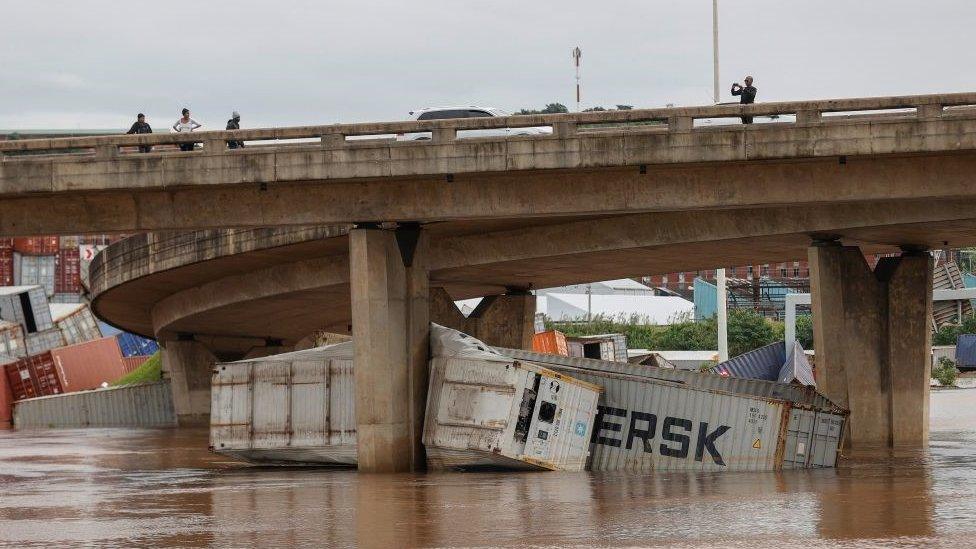
Heavy winds caused some containers, like these, to topple over
In an informal settlement on the banks of the Umgeni River near Durban, there is despair and frustration.
Police fired stun grenades to disperse one group of protesters on Thursday.
They said they were living in the informal settlement because the government had taken too long to build them proper houses.
And after their houses collapsed into the river bed when the ground gave way, they say the government has not done enough to support them.
The police say there have been similar protests elsewhere in the region.
The provincial government says it is conducting "immediate interventions" for affected families.
The city has also witnessed several outbreaks of looting, with 12 people arrested on Wednesday night after two retail outlets were targeted, local media report. According to the IOL news site, external, the suspects took groceries and appliances.
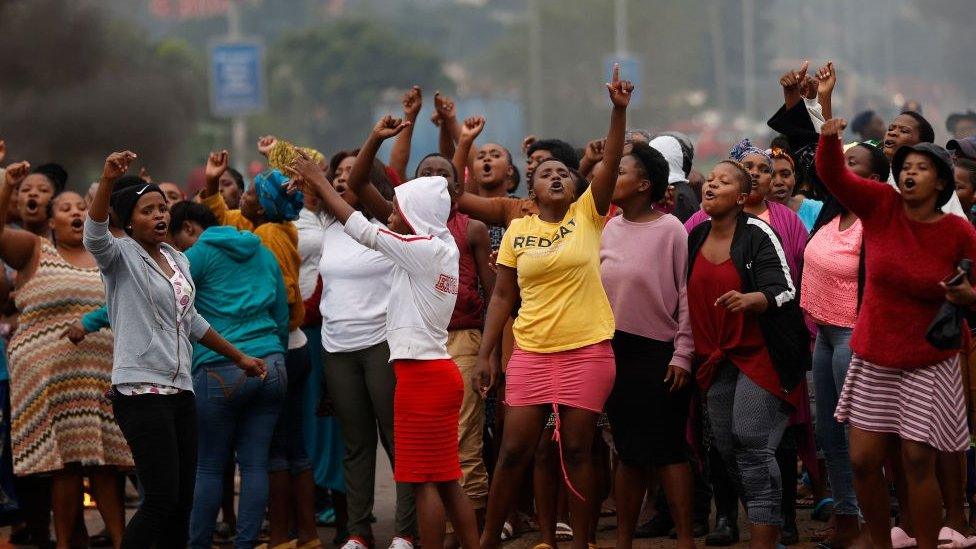
There have been protests in Durban to demand more help from the government
Containers stored in the dockyards of one of the largest ports in Africa have been totally washed away. The state transport company says it has suspended shipping until further notice, which will certainly affect trade across southern Africa.
There are accounts of destruction to churches as well as more than 240 schools damaged in the province.
Volunteers helping to clear up the enormous amounts of debris on Durban's beaches are being offered $0.20 (£0.15) per kg by the local scrapyard which is an hour's walk away.
More rainfall is forecast over the Easter weekend and the province remains on high alert for further flooding.
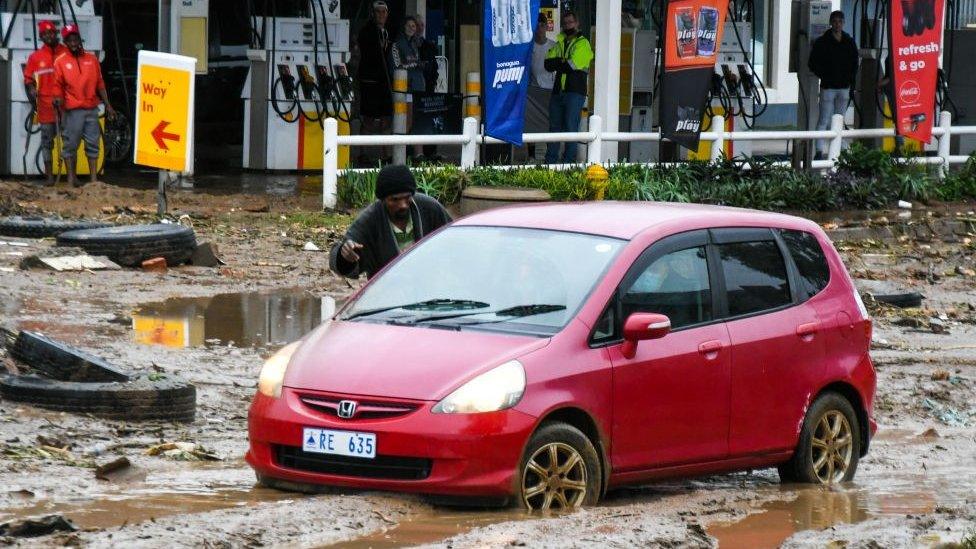
Some roads are not passable